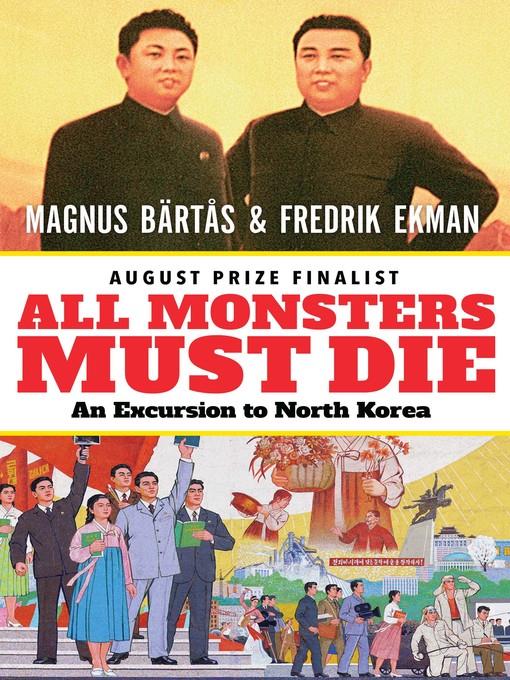
All Monsters Must Die
An Excursion to North Korea
کتاب های مرتبط
- اطلاعات
- نقد و بررسی
- دیدگاه کاربران
نقد و بررسی

Starred review from December 21, 2015
Odds were against this frequently surreal travelogue being so fully absorbing and successful. Foreigners traveling through North Korea by bus for just eight days in 2008 are unlikely to be able to reveal much about one of the most mysterious nations on the planet. Their journey is regimented, rigidly censored, and restricted to officially sanctioned tourist stops designed to showcase the glorious leader and the country's heavenly destiny, making it hard to discern what's real, what's a state-sponsored illusion, or very much of anything about the people. But the Swedish authors are the best kind of tour guides â quick-witted, skeptical, and informative. They take impressively educational detours and are expert portraitists (and occasional satirists), whether they are representing their prickly fellow tourists, officious chaperones, undernourished roadside peasants, or harried restaurateurs. Even though they are permitted to view very little and nearly every word they hear in translation is scripted, the pair manage to paint a convincing picture of a bizarre, comic, and profoundly Orwellian land where newspeak and doublethink are everyday norms. Given the scarce source material, these travelers have spun a richly detailed tapestry. Agency: Kontext Agency (Sweden).

November 1, 2015
Two Swedish artists (one visual, the other musical) record their impressions of a one-week sojourn in North Korea in 2008.Originally published in Sweden in 2011, this text has a busy agenda. Not only do the authors tell about their sightseeing (limited as it was), but they also interweave the story of the 1978 kidnappings of popular South Korean actress and filmmaker Choi Eun-hee and her ex-husband, filmmaker Shin Sang-ok, whom Kim Jong-il, then the head of the Propaganda and Agitation Department, brought to the North, where he gave them substantial financial support for their filmmaking. (For more detailed information about this remarkable story, see Paul Fischer's A Kim Jong-il Production, 2015). Other subjects the authors deal with: the monster-film genre in the region (especially in Japan), the history of the North-South split, impressions of other writers about North Korea, and the mythmaking that political strongmen find essential. During their visit to the North, the authors--and the others with their group--were fiercely restricted: no photographs without prior approval from government officials and no wandering off. The authors speculate that much of what they saw was stage-managed (are those commuters or actors?), and they were deeply skeptical about what they were told--numerous shrines, they believe, are bogus. Near the end, they begin to wonder what the North Korean people really think about their lives. There is, the authors realize, no way to know. The prose is clear, even graceful at times, and the style is seamless. The authors were able to score a long interview with Madame Choi, and from her, they elicit some ambivalence about her tenure in the country. She and her ex appreciated, for example, the substantial state support for their art. A clear and troubling picture of a country forced to embrace madness.
COPYRIGHT(2015) Kirkus Reviews, ALL RIGHTS RESERVED.

























دیدگاه کاربران